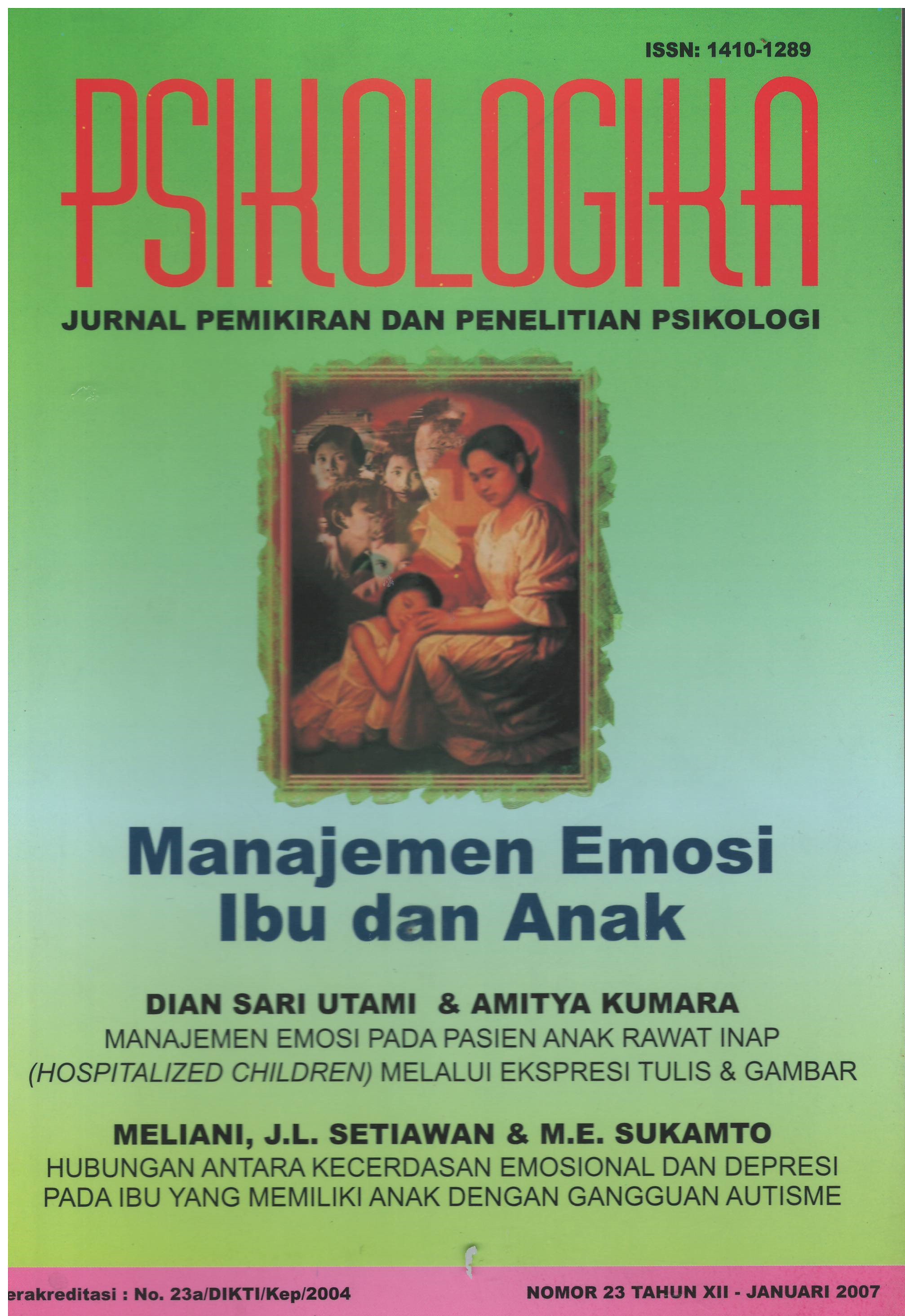Main Article Content
Abstract
Mothers usually expect their children to grow well and healthy. Therefore, having an autistic child is a very difficult experience as this may make mothers feel frustrated and sad. Continuous negative feelings could make the mothers feel depressed. This study aims to examine the correlation between emotional intelligence and depression on mothers with an autistic child. Twenty-six mothers (27) with an autistic child below 12 years old participated in the study by filling in the questionnaires of emotional intelligence and depression. Date were then analyzed statistically by using the Product Moment Correlation Test. Findings showed that there was a significant negative correlation between emotional intelligence and depression (r=-0.571, p < 0.05) The findings suggest that the higher the emotional intelligence a mother has, the lower the depression level she experiences. Findings also show the indication of association between work status and depression on mothers with an autistic child. The implications of the findings are explored further.
Â
Key words           :    autism, emotional intelligence, depression
Article Details
Authors who publish with this journal agree to the following terms:
- Authors retain copyright and grant the journal right of first publication with the work simultaneously licensed under a Creative Commons Attribution-ShareAlike 4.0 International License that allows others to share the work with an acknowledgment of the work's authorship and initial publication in this journal.
- Authors are able to enter into separate, additional contractual arrangements for the non-exclusive distribution of the journal's published version of the work (e.g., post it to an institutional repository or publish it in a book), with an acknowledgment of its initial publication in this journal.
- Authors are permitted and encouraged to post their work online (e.g., in institutional repositories or on their website) prior to and during the submission process, as it can lead to productive exchanges, as well as earlier and greater citation of published work (See The Effect of Open Access).
